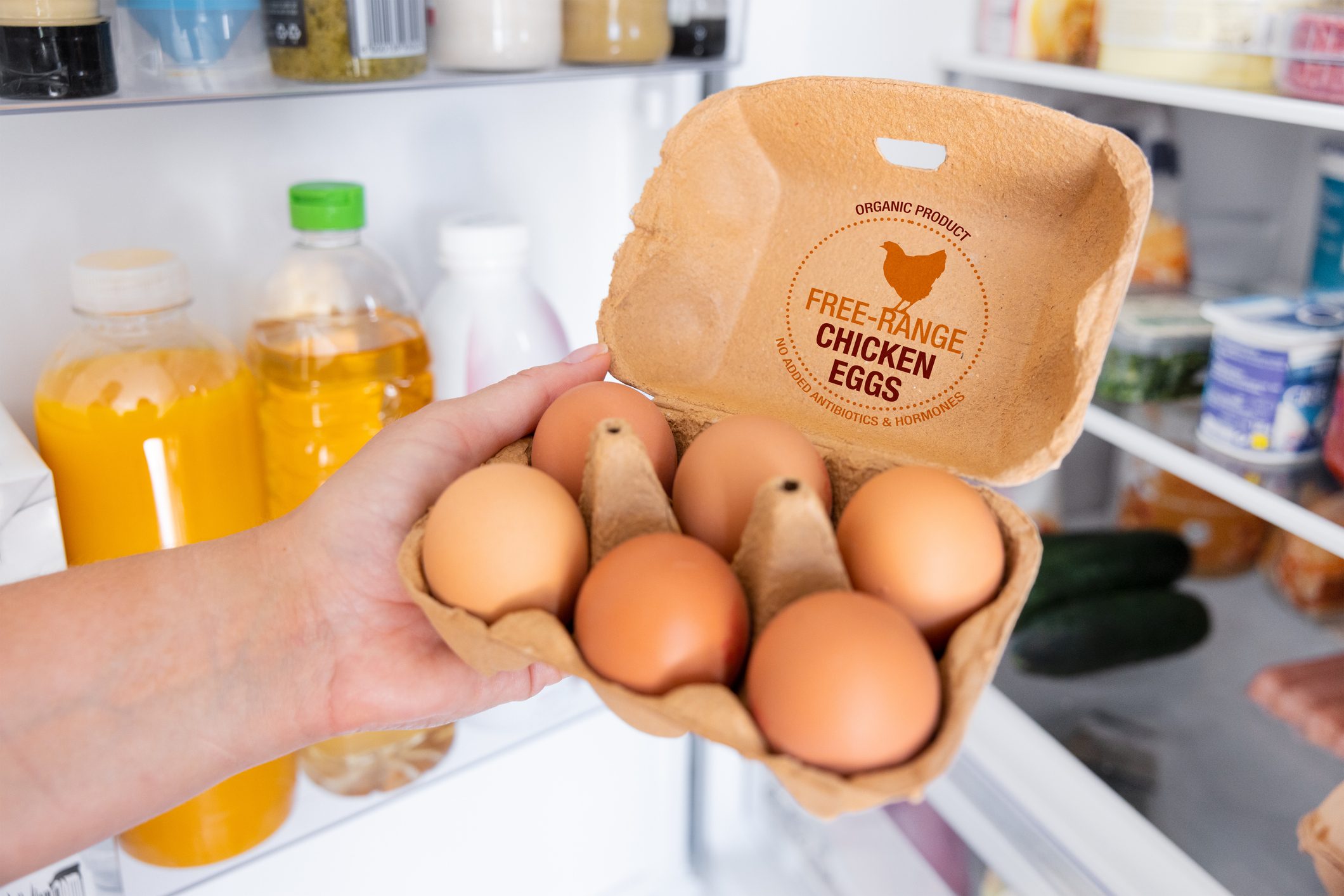Eggs have a surprisingly long shelf life—if you follow these simple rules.

How Long Do Eggs Last?

Some people say that eggs are the planet’s most perfect food. No matter how you boil eggs, fry ’em, scramble them or poach them, eggs are a nutrient-dense and affordable source of protein. They have an impressive shelf life too, thanks in large part to their protective shells.
“Eggshells are semipermeable membranes made almost entirely of calcium carbonate,” says Ann Ziata, chef at the Institute of Culinary Education. “Luckily, there is another, stronger protective layer underneath the shell that works to keep harmful bacteria from entering.”
This design keeps eggs fresh for a surprisingly long time.
How long do eggs last in the fridge?
Whole eggs in the shell last about a month in the refrigerator, but that time varies when outside the shell. “Raw egg yolks and whites last up to four days in the fridge,” says Ziata. “Hard-cooked eggs can be stored for three to four days.” The U.S. Food & Drug Administration offers more flexibility, saying that hard-boiled eggs should be used within a week.
| Type of Eggs | Refrigerator (40°F) |
| Raw whole eggs, in shell | 3 to 5 weeks |
| Raw whole eggs, beaten | up to 4 days |
| Raw egg whites | up to 4 days |
| Raw egg yolks | up to 4 days |
| Hard-boiled eggs, in shell | up to 7 days |
Source: USDA
Toss anything that smells off or looks unappetizing. If you’re unsure, use the float test to tell if eggs are fresh.
The Ideal Refrigerator Temperature for Egg Storage
The USDA advises storing eggs in their carton in the coldest part of your fridge, usually the back or bottom shelf.
“The coldest part of your fridge, set to 40°F, is perfect,” says Ziata. “Don’t store eggs on the door; this area receives large temperature increases each time the fridge is opened.”
She explains that being exposed to warmer temperatures will increase the speed at which bacteria can grow. That’s why it’s best to keep the more shelf-stable items, like condiments, on the door shelves. Store your eggs with cooked chicken, lunch meat and other perishable items on the bottom shelf.
Don’t keep store-bought eggs on the counter, unless you plan to bake with them in the next 30 minutes.
Egg Storage Tips
When it comes to storing eggs, Ziata says that since eggs are porous they can absorb odors from strong-smelling foods like cut onions. Therefore, it’s best to keep them separate, with the eggs in their carton and odorous foods in their own airtight container.
There’s no need to wash your eggshells prior to use either, as all USDA-grade eggs are prewashed. However, “backyard laid eggs can be quite dirty, so if you are harvesting eggs, you’ll need to take them through a specific washing process to remove any potential hazards (including salmonella),” she says.
Whether USDA-grade eggs or farm fresh eggs, though, it’s important to never use eggs with cracked shells, as they aren’t safe to eat.



















